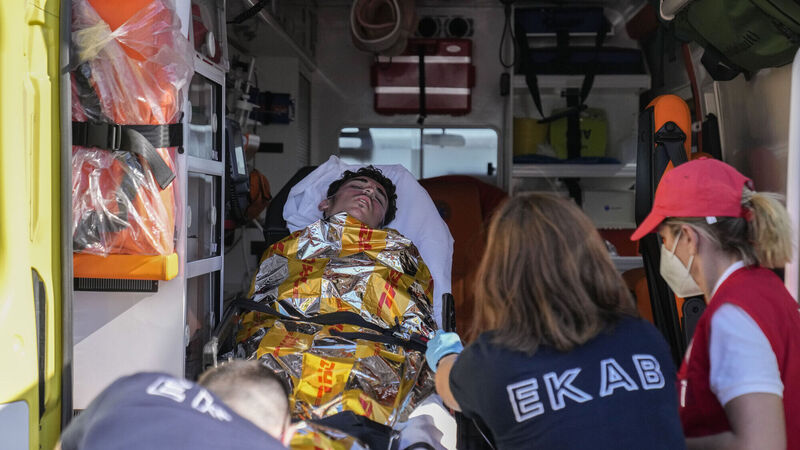Piecing together a deadly shipwreck, investigators face conflicting reports of Mediterranean journey

Paramedics carry an injured survivor of a shipwreck to an ambulance at the port in Kalamata town, about 240 kilometers (150 miles) southwest of Athens on Wednesday. Picture: AP Photos/Thanassis Stavrakis
This much is clear: On June 9, an old steel fishing trawler left eastern Libya for Italy, carrying far too many people.
As many as 750 men, women and children from Syria, Egypt, Palestine and Pakistan were on board, fleeing hopelessness in their home countries and trying to reach relatives in Europe.











